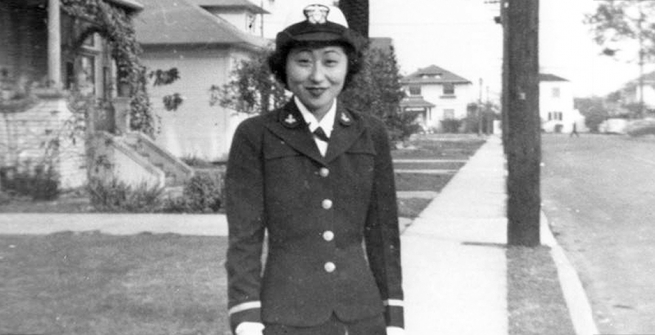The first Asian American woman lieutenant in the U.S. Navy, the first Asian American woman flight instructor to train the US Naval pilots, and the first woman Gunnery Officer in all US Armed Forces was Susan Ahn Cuddy. She lived a pioneering life of service and dedication to the Asian American community and the United States.
Susan was born on January 16, 1915, in Los Angeles to Dosan Ahn Chang Ho and Helen Ahn, leading political activists who fought against the Japanese occupation of Korea in the early 20th century. They were also the first married Korean couple to come to America, arriving in San Francisco in 1902.
Growing up in Los Angeles and attending Fremont Avenue Elementary, Central Junior High, Belmont High School, LA City College, and San Diego State College, Susan led an active student life by taking on leadership roles and participating in sports such as basketball, field hockey, and baseball. She was the Head of Women’s Baseball at LACC, and also had a chance to play professional women’s baseball for the Bing Crosby’s Croonerettes.
Susan’s confidence and persistence continued on to her adult life. She felt that her duty was to join the Navy and fight for America and also for Korea. Despite being initially rejected due to anti-Asian sentiments, Susan joined the U.S. Navy in 1942 by enlisting in WAVES (Women Accepted for Emergency Volunteer Service) during World War II. She went on to serve as an instructor in the Link Training unit, became a Gunnery Officer, and was eventually promoted to the rank of full Lieutenant.
Her career as a Navy Officer led her to serve in US Naval Intelligence where she was subjected to stricter scrutiny because of her race. After being assigned to work at the Library of Congress to do research for the Navy during this prolonged clearance process, Susan finally returned to Naval Intelligence and worked as a code breaker. Following her career with the Navy, Susan led a think tank as Section Chief of the Soviet Unit, collecting information about Russia at the National Security Agency.
While Susan was thriving professionally, she also met her husband Frank Cuddy, a fellow Navy code-breaker and NSA agent who shared similar interests in sports and dedication to public service. Susan’s marriage to Frank was also a story of overcoming racial barriers. Interracial marriages at that time were against the laws of Virginia and Maryland. They had to go to the Navy Chapel in Washington D. C. to get married since it was allowed there under Federal Law.
After retiring from her work at the NSA, Susan returned to Los Angeles in 1959 to help manage the Moongate, a restaurant run by her family and famous older brother Phillip Ahn. He was the first Korean American actor to receive a star on the Hollywood Walk of Fame.
In her later years, Susan continued to work as an advocate and activist for the betterment of Asian Americans. She received the American Courage Award from the Asian American Justice Center in Washington D.C. in 2006 and was recognized by the California State Assembly, other government bodies, the South Korean government, and community organizations.
Susan’s 100-year long life was a celebration of persistence and confidence. Her pioneering life resonates strongly with the young generation of Asian Americans and with women. Her dedication to public service also speaks loudly to community leaders.
Susan Ahn Cuddy is featured in a PBS documentary, Asian Americans, which explores the impact of Asian Americans on the country’s past, present, and future.









